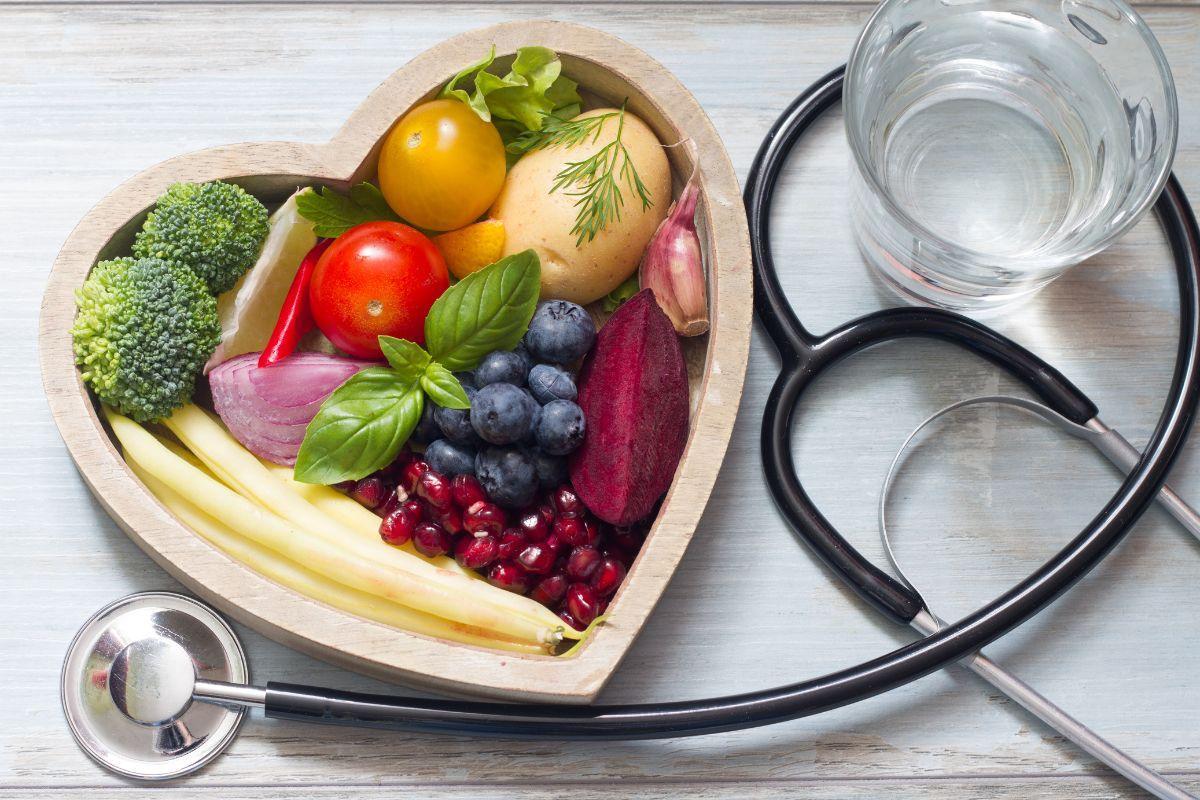What components make up a heart-healthy diet?
Everyday choices can make a big difference to heart health, it doesn’t matter if they are big or small. Many people worry about their heart health, especially if they are getting older, if heart disease runs in the family, or if they had a direct experience like a heart attack. Today, you will learn about the 10 heart-healthy foods that help protect your heart. A balanced diet rich in fruits, vegetables, whole grains, and lean proteins is one of the best ways to protect your heart. At Doctify we have available Cardiologists that can give personalised dietary and lifestyle guidance whenever you want.
Why Nutrition Matters for Heart Health
Food choices affect blood pressure, cholesterol, and overall cardiovascular health. For example, a diet rich in sodium (salt) increases blood pressure, refined carbs (bread, white rice, pastries) tend to raise the cholesterol levels, and a low consumption of fibers and healthy fats (olive oil and avocados) decreases your cardiovascular health. It’s not about restrictive diets that encourage you to eat less or skip meals, but about adding nourishing, supportive, and delicious foods. You don’t need a perfect restrictive diet, just consistent, balanced, and good habits. These 10 heart-healthy foods will help you get those habits.
The 10 Heart-Healthy Foods – Take the List to Improve Your Health
1. Oily Fish (e.g. salmon, mackerel, sardines, anchovies)
Excellent source of omega-3 fatty acids and vitamins A, D, and E, as well as other nutrients like magnesium, selenium, and iodine, which support heart rhythm and reduce inflammation.
Simple tip: aim for two portions a week, fresh or tinned.
2. Berries (e.g. blueberries, strawberries, raspberries)
Packed with antioxidants that protect blood vessels. Easy to add to breakfast, snacks, or smoothies. Easy to pack for work or school.
3. Leafy Greens (e.g. spinach, kale, lettuce, rocket, Swiss chard)
High in vitamins, minerals, and fibre for heart protection. Implementing these as green juices, or just as a handful of leafy greens added to meals makes a great difference.
4. Whole Grains (e.g. oats, brown rice, whole meal bread)
Whole grains help to lower cholesterol and keep energy steady. Swap refined carbs for wholegrain versions when possible, such as brown rice, whole wheat, oats, barley, corn, quinoa, millet, rye, and sorghum.
5. Nuts and Seeds (e.g. almonds, walnuts, chia, flaxseeds)
Nuts and seeds provide healthy fats and plant protein. A handful a day is enough, it’s perfect as a snack.
6. Avocados
Avocados contain heart-healthy fats and potassium for blood pressure control. Can be spread on toast, added to salads, or blended into dips.
7. Olive Oil
A staple of the Mediterranean diet, linked with lower heart disease risk. Use it as a dressing or for light cooking and you will see the changes.
8. Legumes (e.g. beans, lentils, chickpeas)
High in fibre and protein, while low in fat. Versatile for soups, curries, and salads.
9. Tomatoes
Tomatoes contain lycopene, an antioxidant linked to reduced heart disease risk. Cooked or raw, they’re easy to include daily.
10. Apples and Citrus Fruits (e.g. lemon, lime, orange, grapefruit)
High in soluble fibre and vitamin C for vascular health. They can be implemented daily as healthy snacks. Is a simple swap for processed snacks.
Foods and Habits to Limit
There are also foods and habits that affect your heart health negatively. See the list below and learn what you should avoid:
- Sodium (salt): elevated amounts in the diet tend to raise the blood pressure.
- Saturated fats and processed meats: keep them occasional.
- Sugary drinks and snacks: better to replace with water or fresh fruit.
- It’s about balance, not perfection.
Practical Tips for a Heart-Healthy Diet
Keeping a Heart-Healthy diet can be simple. Build meals around plants and lean proteins. Implement also small swaps: wholemeal instead of white bread, olive oil instead of butter, water instead of coke. Do some planning ahead with healthy snacks to avoid processed foods, such as fruits, nuts, and seeds. Remember, that gradual changes are more sustainable than sudden strict diets. Small gradual changes create good habits in the future.
When to Seek Professional Advice?
If you have a family history of heart disease or if you’ve been diagnosed with high blood pressure, high cholesterol, or diabetes, it’s very important to get personalised nutrition and health checks from a Cardiologist. A Cardiologist or dietitian can guide you with safe, personalized advice.
Caring for Your Heart, One Plate at a Time
Heart health is not about quick fixes, but steady, positive choices that in the future generate good habits. With each heart-healthy meal, you’re giving your body the nourishment it needs. Protecting your heart doesn’t have to be complicated — small, daily habits can make a real difference.
Find the right specialist for you. Doctify uses verified reviews so you can make the best decision for your healthcare.

Remember, help is available at Doctify! Doctify connects you with cardiology experts for tailored support. Below you can find the best Cardiologists in the United Kingdom and in Australia at Doctify:
- Cardiologists in London
- Cardiologists in Manchester
- Cardiologists in Birmingham
- Cardiologists in Liverpool
- Cardiologists in Edinburg
- Cardiologists in Harley Street
- Cardiologists in Melbourne
- Cardiologists in Sydney
Medically Reviewed
Last reviewed on 26/08/2025




